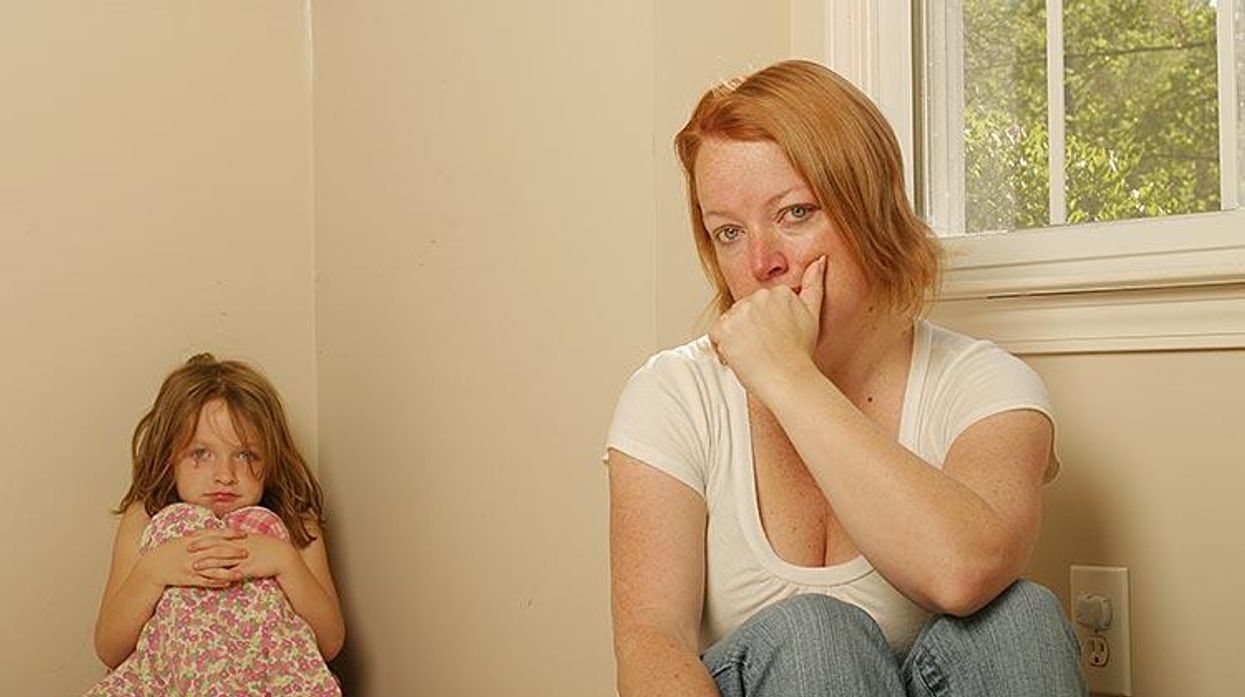Voices
An LGBT Org. Puts Its Weight Behind Ending an Insidious, Antiwoman Law

The Hyde Amendment has punished low-income women for four decades.
September 19 2016 1:09 AM EST
By continuing to use our site, you agree to our Privacy Policy and Terms of Use.

The Hyde Amendment has punished low-income women for four decades.
We all want to be able to live with dignity, build families if, when, and how we determine is best, and get the health care we need to survive and thrive. These ideas are at the heart of the struggles for LGBTQ liberation and reproductive justice, and we are all better off if we can work across these struggles to attain justice for us all. This September marks the 40th year of the Hyde Amendment, which is a legislative policy included in the annual federal budget bill that withholds abortion coverage from those qualified and enrolled in the Medicaid health insurance program for low-income people. All people, no matter who they are, where they work, or how much money they make, should be empowered to make the very personal choice to access abortion services without stigma.
This September, we at the National LGBTQ Task Force are doubling down on our commitment to fighting for reproductive justice and fighting against anti-choice measures like Hyde through an LGBTQ-inclusive frame by empowering our friends in the LGBTQ movement to join with All* Above All to support the United for Abortion Coverage Week of Action, which will take place September 25-October 1 across the country. The Task Force recognizes that we will only achieve comprehensive and culturally competent reproductive justice and LGBTQ liberation when we engage in intentional cross-movement collaboration and fight together. We recognize that our movements are inseparable, and in fact many of the same people who propose policies that discriminate against LGBTQ people also actively working to deny access to reproductive health care. In addition, many LGBTQ people and those fighting for reproductive justice continue to be stigmatized because of the personal bodily choices that we make. As Camilla Taylor wrote earlier this year in The Advocate, people who have an abortion -- whether members of the LGBT community or not -- experience something familiar to all LGBT people: stigma. This stigmatization and shame must be stopped. We must all continue working for the right to live our lives authentically.
The Task Force is proud to stand shoulder-to-shoulder with reproductive rights and justice organizations in the All*Above All coalition to fight against the Hyde Amendment. This egregious amendment named after its antichoice sponsor, former U.S. Rep. Henry Hyde, is one of the oldest restrictions directly targeting low-income people's ability to obtain an abortion. And Hyde, a Republican from Illinois, did not try to hide the measure's intention. He is quoted as saying, "I certainly would like to prevent, if I could legally, anybody having an abortion, a rich woman, a middle-class woman, or a poor woman. Unfortunately, the only vehicle is the [Medicaid] bill." The only exceptions to this ban are in the limited cases of rape, incest, and physical life endangerment. Over the years, the Hyde Amendment has been expanded through the appropriations process to apply to those who receive their health insurance through the U.S. military, the Peace Corps, Indian Health Services, Children's Health Insurance Program enrollees, and many others.
People who identify as part of the LGBTQ community, including cisgender women, transgender men, two-spirit, intersex, and gender-nonconforming individuals, can get pregnant and should be able to access a full range of reproductive health and pregnancy-related services, including abortion. The reality remains that LGBTQ people's access to health care is limited by many intertwined factors, including poverty and racism. Transgender people are four times as likely as others to be experiencing poverty, making under $10,000 a year. LGBTQ people of color are more likely to be poor than white members of the community. Poverty rates on average are higher among lesbian and bisexual women and African-Americans within the larger LGBTQ community, with more than 28 percent of lesbian and bisexual women struggling to make ends meet.
Despite these harsh realities, one fact remains: Both the LGBTQ community and the reproductive health, rights and justice communities are resilient. We will keep fighting until all people have real access to comprehensive health care, and that means a world without Hyde. Together, we can do this by encouraging Congress to pass the Each Woman Act, which lifts the bans that deny abortion coverage. The Task Force is ultimately making a call for all of us to work together to realize a more just future. The obstacles that we face in our fight for reproductive justice and LGBTQ liberation are real. But we are brave, and if we unite, we will become equal and realize the freedom of justice.

Charlie Kirk DID say stoning gay people was the 'perfect law' — and these other heinous quotes